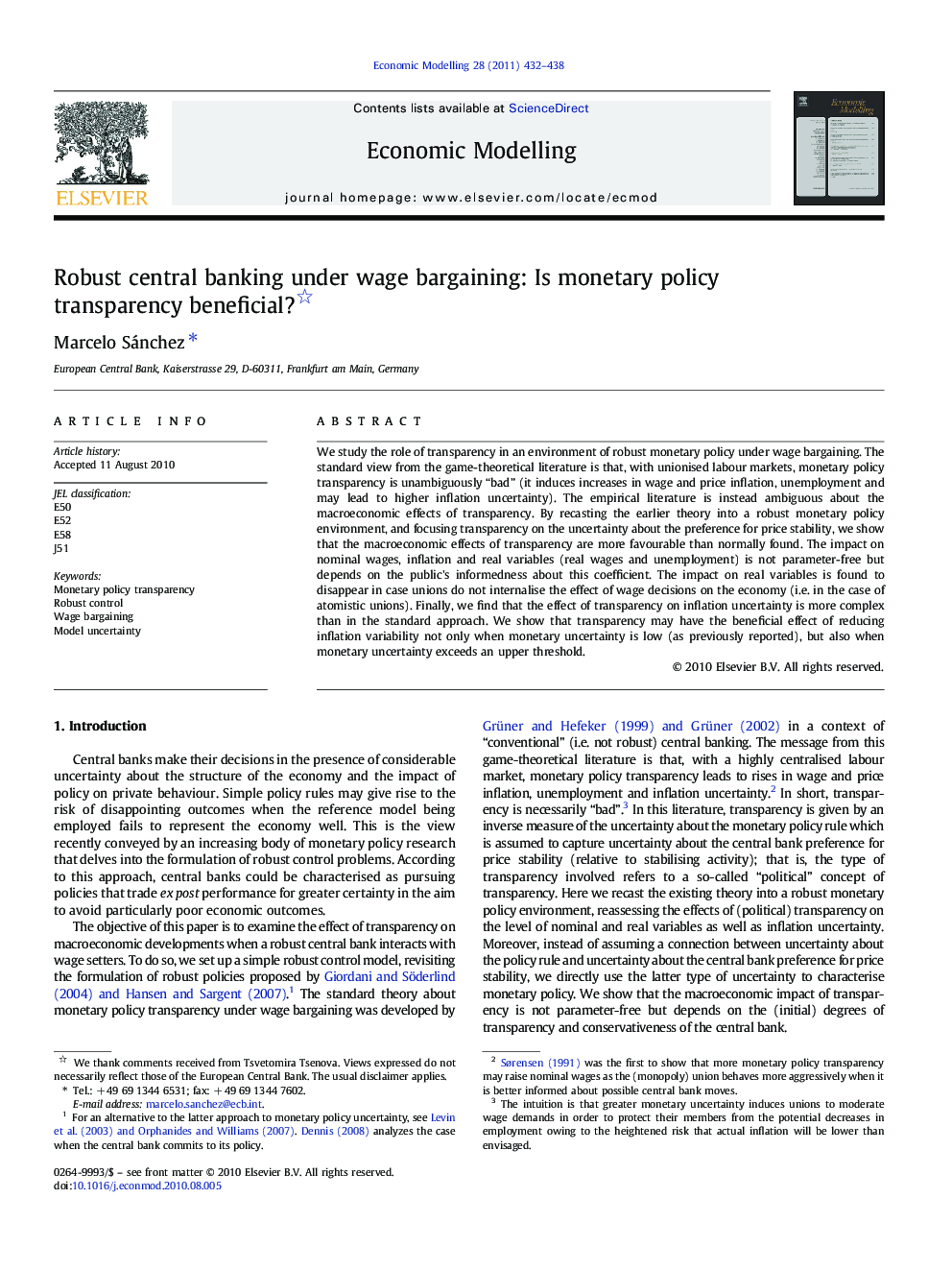| Article ID | Journal | Published Year | Pages | File Type |
|---|---|---|---|---|
| 5055805 | Economic Modelling | 2011 | 7 Pages |
We study the role of transparency in an environment of robust monetary policy under wage bargaining. The standard view from the game-theoretical literature is that, with unionised labour markets, monetary policy transparency is unambiguously “bad” (it induces increases in wage and price inflation, unemployment and may lead to higher inflation uncertainty). The empirical literature is instead ambiguous about the macroeconomic effects of transparency. By recasting the earlier theory into a robust monetary policy environment, and focusing transparency on the uncertainty about the preference for price stability, we show that the macroeconomic effects of transparency are more favourable than normally found. The impact on nominal wages, inflation and real variables (real wages and unemployment) is not parameter-free but depends on the public's informedness about this coefficient. The impact on real variables is found to disappear in case unions do not internalise the effect of wage decisions on the economy (i.e. in the case of atomistic unions). Finally, we find that the effect of transparency on inflation uncertainty is more complex than in the standard approach. We show that transparency may have the beneficial effect of reducing inflation variability not only when monetary uncertainty is low (as previously reported), but also when monetary uncertainty exceeds an upper threshold.
